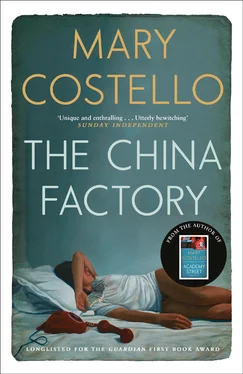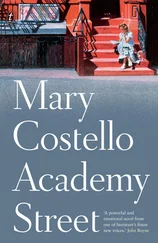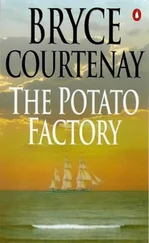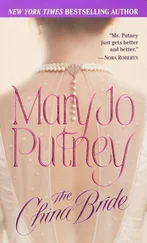Mary Costello - The China Factory
Здесь есть возможность читать онлайн «Mary Costello - The China Factory» весь текст электронной книги совершенно бесплатно (целиком полную версию без сокращений). В некоторых случаях можно слушать аудио, скачать через торрент в формате fb2 и присутствует краткое содержание. Год выпуска: 2015, Издательство: Canongate Books, Жанр: Современная проза, на английском языке. Описание произведения, (предисловие) а так же отзывы посетителей доступны на портале библиотеки ЛибКат.
- Название:The China Factory
- Автор:
- Издательство:Canongate Books
- Жанр:
- Год:2015
- ISBN:нет данных
- Рейтинг книги:5 / 5. Голосов: 1
-
Избранное:Добавить в избранное
- Отзывы:
-
Ваша оценка:
- 100
- 1
- 2
- 3
- 4
- 5
The China Factory: краткое содержание, описание и аннотация
Предлагаем к чтению аннотацию, описание, краткое содержание или предисловие (зависит от того, что написал сам автор книги «The China Factory»). Если вы не нашли необходимую информацию о книге — напишите в комментариях, мы постараемся отыскать её.
In these twelve haunting stories award-winning writer Mary Costello examines the passions and perils of everyday life with startling insight, casting a light into the darkest corners of the human heart.
The China Factory — читать онлайн бесплатно полную книгу (весь текст) целиком
Ниже представлен текст книги, разбитый по страницам. Система сохранения места последней прочитанной страницы, позволяет с удобством читать онлайн бесплатно книгу «The China Factory», без необходимости каждый раз заново искать на чём Вы остановились. Поставьте закладку, и сможете в любой момент перейти на страницу, на которой закончили чтение.
Интервал:
Закладка:
For a while, forty years ago, Suzanne’s return subverted my thoughts. I suspected a child, given up in England — or maybe even kept and concealed there in the house with the mother’s collusion. Such things happen. No one saw anything and gradually, over the years, people forgot and the story faded. I forgot too or doubted that she was ever inside that house. Years later when her mother died she still did not come out. Her brother delivered provisions to her door. Then, following a long illness, my own mother died in Dublin. Sometimes, feeling guilty that my grief was not greater, I would drive over by the lake at night and find myself approaching Suzanne’s house. What did I expect — that I would come upon her taking the night air too, or out walking a large odd-looking child on a lead under the stars? I remember the moon, its thin fragile crescent hanging delicately over her house. I walked down to the lake’s edge one night and let the water lap at my feet. I am not certain there was feeling in my heart for anyone — for my dead mother, for Suzanne, even for myself. I had my life, tight and contained, and few regrets. I drove to school every day, attended to my teaching duties, hoping — particularly in the early years — that my teaching duties, hoping — particularly in the early years — that something, Homer perhaps, might affect the boys and alter their lives. I came home in the evenings and listened to music and cooked and read late into the night. In summer I took trips — Athens, Vienna, Bayreuth. Little, apart from the odd metaphysical ache, ever caused a ripple on this composed life. Occasionally, moments in the classroom when I’d be pulled up by a line or an answer or an insight from a boy. Moved by a recitation of Socrates’ speech from the dock, or Achilles’ lament for great-hearted Patroclus. Such pitiable things. Once, after a morning considering Orpheus, I read aloud from Rilke’s sonnet and there, standing on the raised dais in my classroom, I came briefly undone. I was hearing the notes of Orpheus’s lyre, seeing his anxious head glance back and glimpse Eurydice, feeling his bereftness as he ascended the underworld without her. She’s dead , Hades said, You cannot have her back .
Last year I retired. I do not know where the years have gone. I do not know, either, what difference, if any, I ever made to a boy’s life. There were, over the years, a few whose sensibilities, whose casts of mind, were similar to my own, yet I never felt compelled to follow their progress or career paths. Perhaps I was afraid I might see in these boys my own unborn sons. I must have known I would never engender life like other men. That the nearest sires I would have would be those boys in the desks before me, the only offspring the gods and goddesses pressing forth from the pages, needing delivery. On weekend visits to my mother in the early years I would occasionally run into old school and college friends in the city, with a child or two in tow, and I would smile and admire the children and enquire after their lives. One day in a bookshop a college classmate asked if I’d heard about Cóilín McDonagh. My eyes might have narrowed a little at the name, I might have had a brief intake of breath, bracing myself for news of me that somewhere on the west coast of America, Cóilín had crashed his motorcycle into a tree and been killed instantly. As he spoke I was staring at the spine of a book behind his head, and thinking of palm trees and ocean swells and open-topped cars on a Pacific highway. And fine cheekbones being smashed against a redwood. I think now that leaving university was my first real encounter with grief. A sickly unease in those final weeks, a paralysis, a constriction of the heart at the prospect of parting. But what could be done? What could be said? There was no call for farewells.
I am determined to travel more. Last month I went to Berlin. The Middle East — Jerusalem — calls to me. I picture myself, a contrary old atheist, moving along the narrow alleys of the city, stopping to talk to old men in doorways — Jew, Christian and Muslim alike — curious to glean something ancient and abiding in their faith and catch a glimpse of the God gene that has bypassed me or lies inert within me. Lately I am intrigued by genes, by the randomness of genes, the randomness of any gene being switched on or off, and how that determines what we are, what makes us one thing or another.
These were my thoughts driving home from the airport last month. As I neared the village I drew up at the T-junction and yielded. A slow-moving hearse drifted into view and passed before my eyes, heading towards the cemetery. Half a dozen cars crawled behind. I turned right into the village and stopped at the shop for milk and bread.
‘Whose is the funeral that just passed?’ I asked the woman behind the counter.
‘Oh, that Cleary woman — you know the odd one with the bike from over by the lake? The brother found her dead in the bed the other day.’
*
She had lasted just one summer. The thought struck me that she might have had a premonition, a foreshadow of her own death, and opened her front door in early summer and ventured out to confirm that this place — such a place as this — had really existed, and she was not mad after all. Or only a little mad — just enough to discern some dark knowledge, a latent memory in her cells that sensed the stirrings of a new omen.
I went over there that evening, parked in the pub car park and walked along the road towards her house. Behind me I could hear the old Guinness sign swinging in the breeze. A bird flew low across my path, heading for the lake, its long scraggy neck almost level with my eyes. Then I was standing between the two pillars in front of her house, looking in. It was a long low bungalow with three small windows and a green door. I walked in the drive and around the back. Her bicycle was lying against the gable end of the house. A bag of turf sat outside the back door. I peered in the windows but could make out little through the dense net curtains. I tried the handle of the back door. A few fields away, a cow lowed. I sat on a low stone wall for a while. I did not like to think of her silence, like a dark mass enclosing her for years.
I was gazing at the window, squinting at the lacy pattern on the net curtains. Then something compelled me to rise and step forward. Something guided my hand to the base of the window frame. It slid up easily on its sash. I parted the curtains and raised my leg and bent my back and stepped into her bedroom. The light was dim. A clock ticked loudly. There was an unmade bed, a wardrobe, a dressing table, a private feeling. I walked through the house. In the kitchen there were newspapers strewn on the floor. Dirty dishes in the sink and half-filled jars and tins and packets of soup on the table. I wandered back to her bedroom and opened the wardrobe. The sickly smell of unwashed jumpers, old shoes. I turned around. I wanted something — a prayer book, a photograph, a diary maybe. I opened a drawer of the dressing table. Two pairs a diary maybe. I opened a drawer of the dressing table. Two pairs of dark socks that might have belonged to a man or a woman. Rosary beads. In the bottom drawer a medical textbook for nurses. I picked it up. From inside the back cover I lifted out a yellow page from an old newspaper, unfolded it and moved to the window for light.
It was pages three and four of the London Evening Standard , dated 22 November 1971. Six climbers dead in Scotland. Fighting in the Boyra peninsula in East Pakistan. The death of a famous footballer, aged forty-seven. Near the bottom of the page a court report. I began to read. The two defendants, aged nineteen and twenty-six, were convicted of robbery and aggravated sexual assault with intent of degradation on a 23-year-old Irish nurse in Dulwich. The victim was not named. They broke into her flat early one morning armed with a wheel brace and a hacksaw and subjected her to a terrifying ordeal lasting several hours. They cut off her nightdress and underwear with a Stanley knife, threatened to cut off her nipples unless she lay face down on the bed with her arms outstretched. With the Stanley knife they sliced her from neck to waist, slashed her buttocks, carved a vile word on her back. They sexually assaulted her with the wheel brace. Before they left they ransacked the flat and cut off the woman’s hair.
Читать дальшеИнтервал:
Закладка:
Похожие книги на «The China Factory»
Представляем Вашему вниманию похожие книги на «The China Factory» списком для выбора. Мы отобрали схожую по названию и смыслу литературу в надежде предоставить читателям больше вариантов отыскать новые, интересные, ещё непрочитанные произведения.
Обсуждение, отзывы о книге «The China Factory» и просто собственные мнения читателей. Оставьте ваши комментарии, напишите, что Вы думаете о произведении, его смысле или главных героях. Укажите что конкретно понравилось, а что нет, и почему Вы так считаете.












